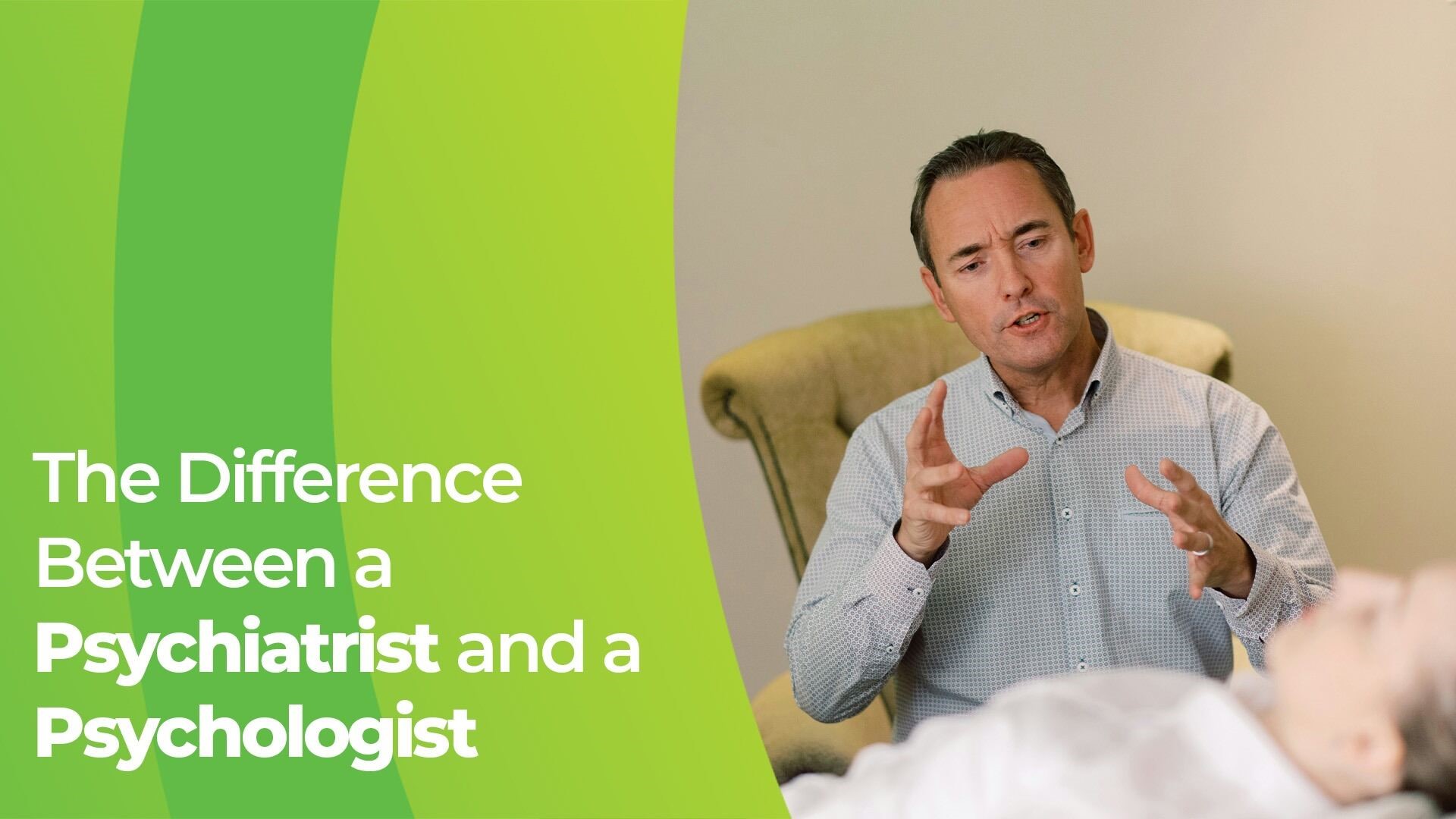The Difference Between a Psychiatrist and a Psychologist
The Difference Between a Psychiatrist and a Psychologist

Understanding where to turn for mental health support can be challenging. Many parents and teenagers feel uncertain about the options available, wondering what type of care might be the most effective. It’s a confusing landscape, filled with different professionals and approaches to care. But knowing the difference between the types of help available can make a world of difference in navigating these choices with confidence.
By understanding who can provide the right support, you can feel more prepared to take the first steps toward getting the help needed. Whether you’re a parent trying to support your teenager or a young person looking for guidance, knowing where to start is key to finding the right path to feeling better.
In this blog, we’ll walk you through the key differences between a psychiatrist and a psychologist, how to determine which professional might be right for your needs, and whether it might be beneficial to see both.
What is the Difference Between a Psychiatrist and a Psychologist?
Understanding the roles of a psychiatrist and a psychologist can help you decide which profession is best suited for your needs or those of your child.
What is a psychiatrist?
Psychiatrists are medical doctors who specialize in mental health. Their training includes medical school and a residency in psychiatry, where they learn to diagnose and treat a wide range of mental health conditions, from depression and anxiety to bipolar disorder and schizophrenia.
What does a psychiatrist do?
Psychiatrists can prescribe medication, such as antidepressants or mood stabilizers, and they often focus on how these medications can help manage symptoms. They may also conduct physical exams, order lab tests, and provide a comprehensive treatment plan that might include therapy in collaboration with a psychologist or another mental health professional.
What is a psychologist?
Psychologists, on the other hand, are trained in the study of the mind and behavior. They typically have a doctoral degree in psychology (Ph.D. or Psy.D.) and specialize in therapeutic techniques, such as cognitive-behavioral therapy (CBT) or family systems therapy, and psychological evaluation.
What does a psychologist do?
Psychologists focus on understanding emotional and behavioral patterns and helping you or your child develop coping strategies, improve communication skills, and work through challenges and trauma. While they don’t prescribe medication, they work closely with psychiatrists and other healthcare providers to ensure a holistic approach to mental health care. They can also conduct comprehensive psychological evaluations using standardized assessment measures to clarify diagnoses and make treatment recommendations.
Psychiatrist vs. Psychologist: Which One is Right for You?
Deciding whether to see a psychiatrist or a psychologist depends on your specific needs or those of your child.
If you’re dealing with symptoms that may require medication—such as severe depression, anxiety, mood disorders, or ADHD—a psychiatrist might be the best place to start. Psychiatrists can provide a medical diagnosis and prescribe medications that help manage symptoms, and they can adjust treatment plans based on how you respond to these medications.
However, if you’re looking for someone to clarify diagnoses through a comprehensive evaluation, or someone to talk to, who can help you or your child navigate emotions, behaviors, and everyday challenges, a psychologist might be the right choice. Psychologists use various therapeutic techniques to help you understand your thoughts and feelings, develop coping strategies, and work through difficult situations. If necessary, a psychologist can also refer you to a psychiatrist for medication management. In some cases, seeing both a psychiatrist and a psychologist can be beneficial.
This combined approach allows for medication management alongside regular therapy sessions, offering a more comprehensive treatment plan. For example, a teenager struggling with anxiety might benefit from medication prescribed by a psychiatrist while also attending therapy with a psychologist to learn coping mechanisms and work through emotional triggers.
Ultimately, the best choice depends on your unique situation and what kind of support feels most helpful to you.

Choose Between a Psychiatrist and a Psychologist with Child Focus
When it comes to your child's mental health, finding the right support is crucial.
At Child Focus, we understand how difficult it can be to choose between seeing a psychologist or a psychiatrist. Our team is here to help guide you through this decision by offering specialized behavioral health services designed specifically for children and adolescents.
Child Focus provides a range of therapeutic services aimed at helping children and teens navigate emotional, behavioral, and mental health challenges. Our experienced psychologists use standardized assessment measures to conduct full psychological evaluations to clarify diagnoses and guide treatment recommendations.
They offer evidence-based therapeutic approaches to support your child in understanding their feelings, developing effective coping strategies, and building resilience. Whether your child is dealing with anxiety, depression, behavioral issues, or other mental health concerns, our psychologists are here to provide the compassionate care they need.
If during therapy, we find your child might benefit from medication or a more medical approach, we can refer you to trusted psychiatric professionals.
Our goal is to ensure your child receives the most appropriate and effective care, whether that’s through our psychological services or through a referral to a psychiatrist. We're committed to supporting your child's overall mental and emotional well-being every step of the way.
Interested in the difference Child Focus can make for your child's mental health? Click here to reach out now and discuss your options!
For more tips on how to help your family thrive, follow Child Focus on Facebook, X, Instagram, and LinkedIn today!
Has Child Focus made a difference in your life or the life of someone you care about? Leave Us A Quick Review Here!
